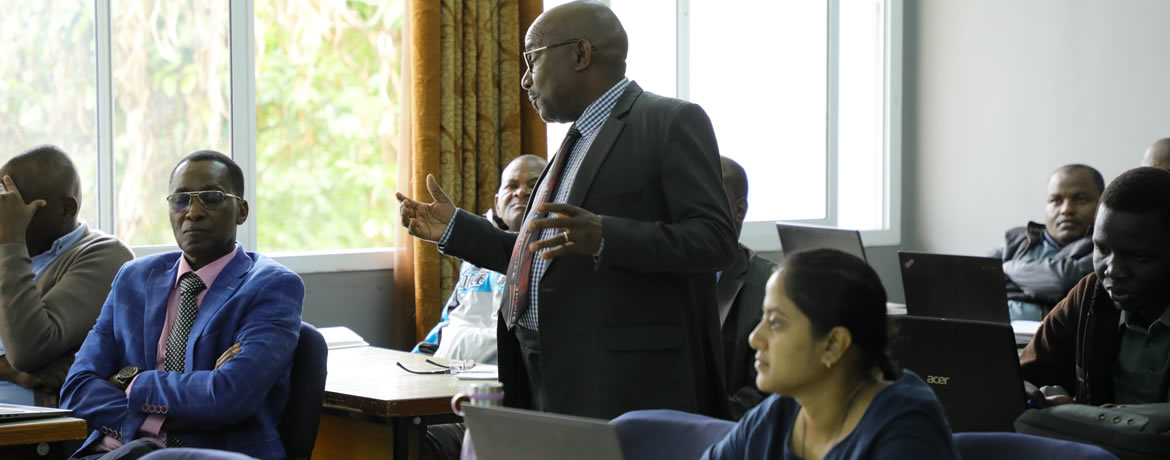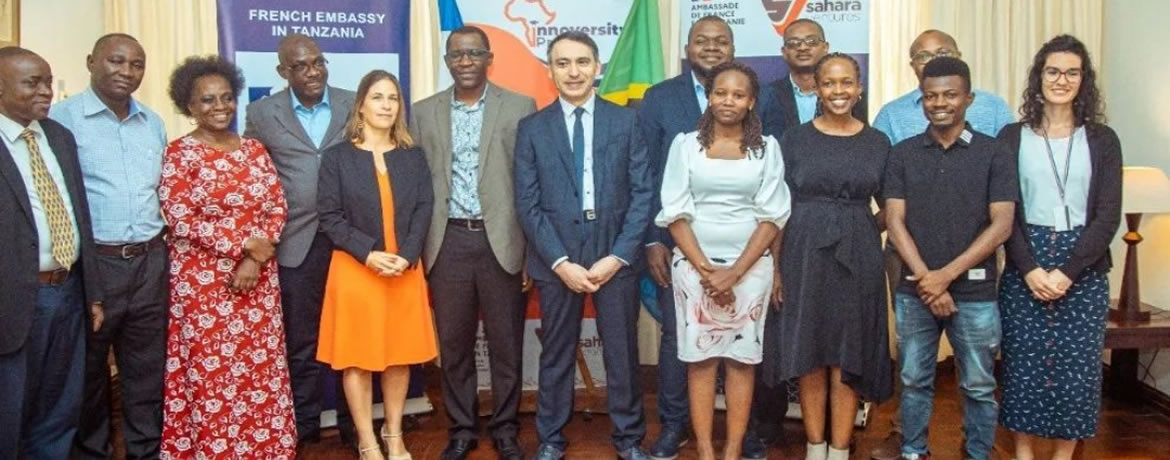The Nelson Mandela African Institution of Science and Technology (NM-AIST) faculty and staff got exposure of how to register and protect their inventions and innovations through a one-day workshop organized by NM-AIST in collaboration with the Business Registration and Licensing Agency (BRELA). The workshop took place on Monday June 13th , 2022 in Arusha.
Speaking during the workshop, BRELA's Chief Personnel and Administration Officer Mr. Raphael Mtalima, said that inventors and innovators discover/ innovate their inventions/innovations but they lack skills to protect them and thus do not benefit from the created inventions/innovations.
He said, to facilitate some of the inventors and innovators to gain an understanding of Intellectual Property (IP), BRELA decided to provide training to five different institutions in Arusha Region, including NM-AIST.
"We are empowering designers to realize the importance of continuing their research and innovations and registering with BRELA for future benefit," said Mr. Raphael.
The Director of the Research and Innovation Directorate of NM-AIST, Dr. Edna Makule, said that, the workshop is of great benefit to both researchers and innovators from the Institution. There are various innovations/ inventions produced at NM-AIST that have reached the point of protection, therefore the education provided will help to take further steps in protecting such innovations/ inventions.
A faculty member of NM-AIST, Mr Isaack Kandola, acknowledged both the Institution and BRELA for organizing the workshop and promised to apply the gained knowledge in order to protect his innovation.
On 13th June 2022, the Nelson Mandela African Institution of Science and Technology hosted Students and Staff of the North Eastern University from Boston United States of America.
The visit, organized through the International Office, aim for exchanging ideas and interacting with NM-AIST staff and students. The visiting team was led by Prof. Auroop Gangly.
The discussions centered on possible collaborative areas to include Environmental Engineering, Biodiversity and ecosystem management , African socio economics Development, Machine Learning and Artificial Intelligence and as well as the effect of Climate Change on peoples life and development.
The Northeastern University Students and Staff further visited the NM-AIST Incubation Centre and they were informed about the research and innovation processes by the Incubation Manager Dr. Angela Mkindi. The Manager explained how the NM-AIST students and staff manage to emerge with innovations to solve challenges facing the society.
Prof. Ganguly concluded that, the exchange program is beneficiary between the two universities as it enables the staff and students to interact with each other on how to forge partnership and collaboration in various research areas.
The Nelson Mandela African Institution of Science and Technology is among of the three beneficiary universities of the Innoversity Project launched by French Embassy , others are University of Iringa and Sokoine University of Agriculture. The Innoversity Project aims to develop a conducive environment to innovators and entrepreneurs within the three Universities.
Acting Deputy Vice Chancellor Planning, Finance and Administration Prof. Charles Lugomela urged that Banana is a staple food crop and a key source of income supporting the livelihoods of millions of small holder farmers in Sub- Saharan Africa.
Prof. Lugomela said that on 23rd May, 2022 during a workshop of Accelerated Breeding of Better Bananas Project led by International Institute of Tropical Agriculture (IITA) with aims to deliver improved ,disease resistance ,high- yielding cooking banana varieties to framers across the region.
The project works with the national banana breeding programs in Tanzania and Uganda, focused on East Africa Highland banana (EAHB) or Matooke and Mchare. Pests and diseases are particularly damaging to yields in East Africa.
In Tanzania and Uganda, banana is a staple and major source of income for millions of smallholder farmers. These two countries alone produce over half of all bananas grown in Africa, with an annual value of US$4.3 billion. However, farmers are producing a mere fraction of what is possible, mostly due to attack by pests and diseases and the use of local, low-yielding varieties. New, high-yielding pest and disease-resistant varieties bred conventionally will make a significant difference in reducing this huge yield gap
EMoS students show case innovative solution to visitors at NM-AIST booth during the Innovation Week in Dodoma. Most of the innovate product has been developed for the aim of solving industrial and community's challenges such as Home Smart Ugali Cooker..







